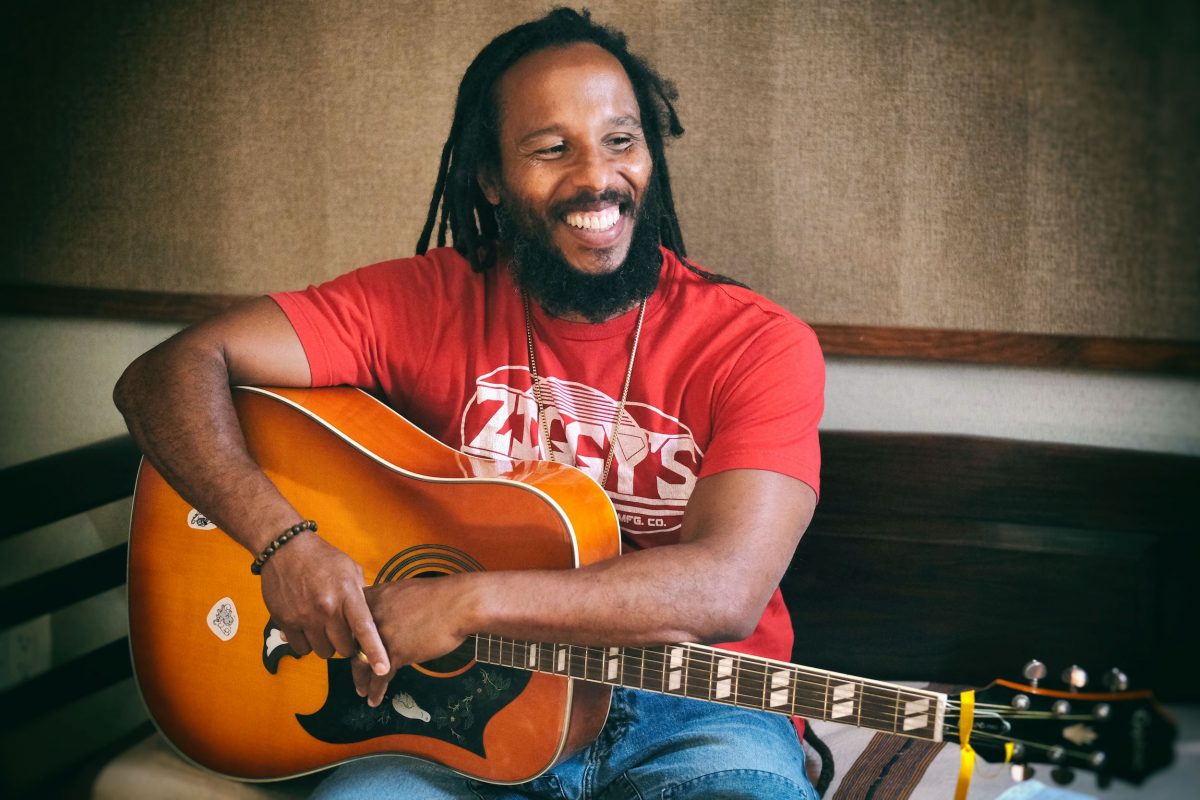Ziggy Marley Says He Was Unbothered About Backlash Over Melody Makers’ ‘Head Top’

Ziggy Marley has reminisced on Head Top, the controversial song whose accompanying music video was released almost 30 years ago, which left tongues wagging in Jamaica and most people reacting with shock.
On Friday, the Melody Makers leader shared a snippet of the music video with women dancing on their heads and noted how much fun he had voicing the song as well as filming the music video.
“It is Friday. Time for one of my favorite fun melody makers videos filmed in 1993 on marcus garvey drive with support from the surrounding communities of payne land, backtu, rema, jungle, trench town matches lane, bull bay,” the Rebellion Rises singer wrote on his Instagram page.
“The song was inspired by the sisters you see dancing we went out one night and saw them doing this crazy dance move me and ragga @stephenmarley wrote ‘HEAD TOP’. Very controversial at the time in jamaica people said all type of things 😂 we nevah care. have some fun in life. Happy Friday.”
Head Top was the seventh track from Ziggy Marley and the Melody Makers’ Joy and Blues studio album. It was released in 1993 on Virgin Records.
The song describes a typical Kingston street session which has nice vibes, and focuses on the women who are dancing at times on their head top, which Ziggy describes as an African thing.
“I see some girls wining on their head tops/Police pass through, don’t even try and stop it/’Cause they know who is running it,” he chants in the first verse, later going on to big up several inner-city communities whose residents were instrumental in making the video a success.
The album was nominated for a Grammy Award, in the Best Reggae Album category. It also peaked at No. 178 on the Billboard 200 charts.
Among the other songs on the 12-track album were the title track Joy and Blues, Brothers and Sisters, There She Goes, Talk, Rebel in Disguise, African Herbsman and World So Corrupt.
In a review of the album back in August 1993, The Washington Post in its opening paragraph, focused on Head Top, noting that: “on their new album, Joy and Blues, Ziggy Marley & the Melody Makers make an obligatory nod to the dancehall craze that now dominates reggae. Head Top is done ragamuffin style, with Ziggy chanting about the ‘wicked riddim’ and ‘some girls wining on their head tops’, before turning the mike over to his kid brother Stephen and his heavily echoed rap”.
Ziggy Marley and the Melody Makers was comprised of himself, who served as lead vocalist/guitarist, his younger brother Stephen who sang, deejayed and played guitar and drums and sisters Cedella and Sharon, who were both vocalists.
The quartet had initially come together as a musical unit in 1979 to record Children Playing in the Streets, a song said to have been written for them by their father Bob Marley, which was about the undesirable living conditions of children in Kingston’s ghettoes. All royalties from that single were pledged to the United Nations, to aid its efforts during the International Year of the Child.
Ziggy Marley and the Melody Makers won three Best Reggae Album Grammy Awards and secured five nominations in total before disbanding in 2002.
The group won their first Grammy Award in 1989 for their album Conscious Party.
In 1990 and 1999, they copped two more Grammy Awards for the albums One Bright Day and Fallen Is Babylon respectively.
In his solo career, Ziggy has since gone on to win five more Grammy Awards, namely Love is My Religion, Family Time, Fly Rasta, Ziggy Marley in Concert, and the self-titled Ziggy Marley.
